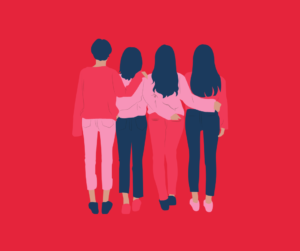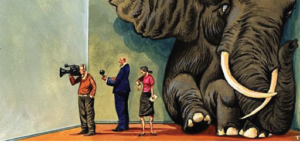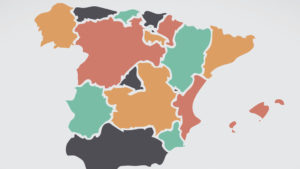The representative democracy we are used to has been decontextualized.
In the past, the operation of a representative democracy was unfeasible due to physic, organization, time, and other matters. It was impossible to house a whole community at the same time in a physical space and to organize them in such a way it could be possible to debate and solve the matters at issue. Then, it was established what is known as representative democracy, where many people delegate their power in a few persons. In this way, by reducing drastically the number of people responsible for deciding, it is possible for them to coincide in one place, at the same time, and to organize themselves in order to make decisions about different issues.
However, today, new technologies make possible what in the past seemed unthinkable.Nowadays, we can gather and communicate with each other without the need of being physically present. People in different parts of the world may meet in a common space, to which everybody has access, without the necessity of leaving their homes. It is no longer necessary for the members of a community to gather in a square to hold an assembly, where only part of the citizenship participates, and where communication is available to few orators while the rest of the citizens are only limited to approve or disapprove their words. Technology allows the equality of opportunities as regards communicative terms and generates a space where everybody can attend, listen and be listened.
Like all things, first they appear as a possibility and then they become a necessity. We are moving from discovering the possibility of acting specifically in different areas of government to the need of exercising that possibility. So, those governmental authorities lacking enough sensitivity to interpret the new needs of their governed will, inevitably, be moving away from their electorate.
This is why governmental authorities must closely follow the new social demands produced by the new possibilities, and accompany with such actions that address the new requirements expressed by the society.
However, as is always the case, public institutions are constantly the last to adapt to changes. This brings negative consequences for those who rule these institutions, and very positive ones for those who, either in or out of the institution, ask or demand the updating of said institutions: this being their personal constant struggle.
People realize that government does not give public institutions all the participation they should have, and in fact other political actors actually do. That is why it has a negative consequence for those who deny public institutions and a positive consequence for those who recognize them.
Television is a clear example of this change in society. Television is a mean of communication which is constantly aware of changes in the social conducts and, that was how a few years ago strongly appeared a new format called “reality show”. These kinds of programmes greatly differed from the existing ones so far, and its appearance was no casual but the result of the study of social changes. It was understood that viewers did not accept to be mere passive consumers of programmes; instead, they demanded direct participation in its production. So, viewers got the place they demanded. Thereby, there exist television programmes which allow viewers to vote 24 hours a day from their homes either by phone or by internet about the functioning of the programme itself, that is to say, they cease to be consumers of the product to become the producers of what they consume. Not only that, but viewers are able to communicate in a direct way, via social networks, with the host of the television show and its protagonists. Thus, people realize the existing contradiction between this and politics, where citizens vote every two years and in each occasion they must physically move to a certain place and make queues in order to cast a vote, when instead they could, and as a matter of fact they do, vote from their homes and in a much more frequent way. The possibility to communicate in a direct way with the authorities is very difficult.
Certainly, it is not expected that people start to vote everything all of a sudden, but gradually start to generate the necessary platforms for the citizens to debate and to vote in a direct way, without intermediaries, those sensitive and transcendental issues for the citizenship. Because, in fact, they already do it but in different fields, less important for the life in society.
To conclude with, if there is the possibility to do it, it is also the need to do it, only rests that those who have the legal authority to put it into practice understand the importance of doing it.






